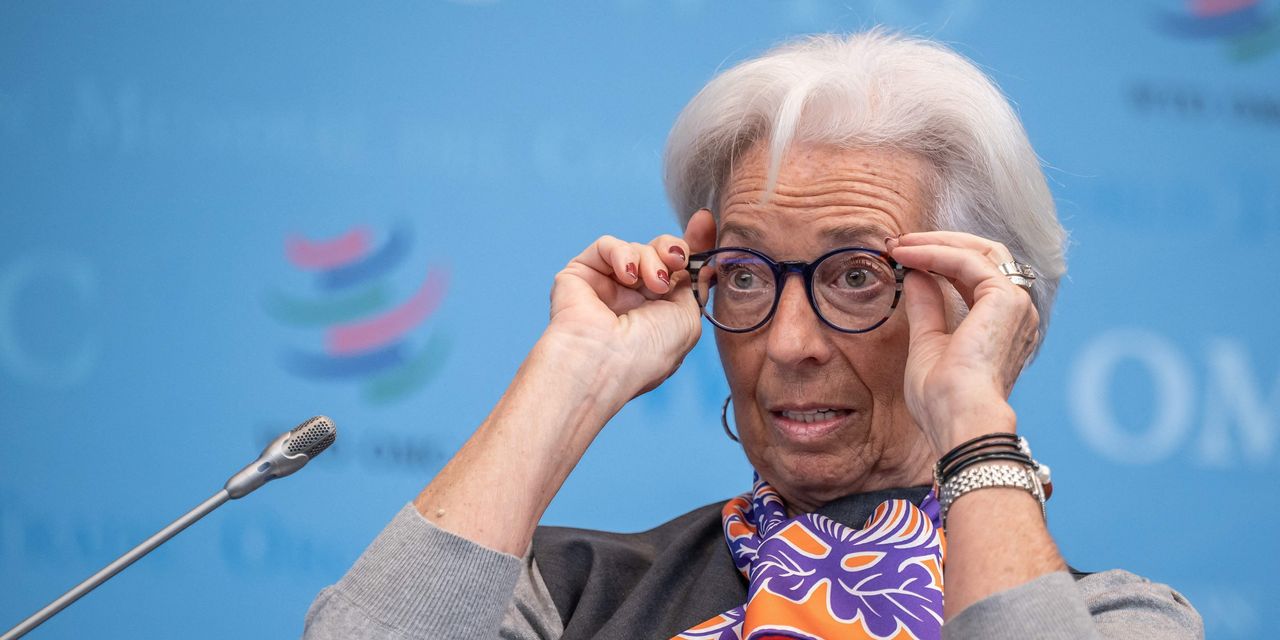Headline consumer inflation in Europe is decelerating, data released on Thursday showed.
However, bond yields reversed initial losses as traders noted German CPI not falling as much as hoped and underlying price pressures remained stubbornly high, raising concerns the European Central Bank may need to keep raising interest rates.
Consumer prices in Spain, the eurozone’s fourth biggest economy, rose 3.1% in the year to March, down sharply from the 6% increase recorded in February and below forecasts of 3.7%.
The 20-month low for Spanish inflation was driven by plunging energy prices as tight conditions in the natural gas market eased across the continent after countries weaned themselves off Russian fossil fuels in the wake of the Ukraine invasion.
The European price of gas was around €44 a megawatt hour on Thursday, down from €175 six months ago.
“Core [Spanish] inflation will also gradually lose momentum, although we expect it to be much stickier. Rising energy prices are typically passed on to sales prices faster than when energy prices fall,” said analysts at ING.
Meanwhile, an earlier raft of reports from German states also showed disinflation. North Rhine-Westphalia and Bavaria, the country’s top two economic powerhouses, saw year-on-year consumer prices in March fall from 8.5% the month before to 6.9% and drop from 8.8% to 7.2%, respectively.
Aggregate German inflation data was later also released on Thursday, and showed a dip from 8.7% to 7.4% in March, but this was slightly above expectations of 7.3%. The eurozone-wide figure will be published Friday.
Benchmark German 2-year bond yields
TMBMKDE-02Y,
which are particularly sensitive to central bank monetary policy, initially fell more than 10 basis points to 2.54% as investors welcomed the drop in headline inflation.
But later yields were up 6.4 basis points on the day to 2.708% after the market noted the aggregate German data was higher than forecast, and that core Spanish inflation — which excludes volatile items like fuel and food — only dipped 0.1 of a percentage point to 7.5%.
Falling headline inflation, but stubbornly high core inflation is seen complicating the ECB’s monetary strategy, particularly as central bank officials remain wary about stresses in the banking sector partly caused by its recent sharp rises in interest rates.
The ECB earlier in March raised borrowing costs by another 50 basis points to 3% and is expected to increase that to 3.5% in coming months.
But a sentiment survey also released on Thursday showed that confidence remains fragile across the continent, according to analysts.
“Eurostat’s economic sentiment survey saw a slight weakening in March, in contrast to the services-driven improvement of the PMIs last week. Euro area activity may now be near the peak of the post-energy shock rebound. New headwinds, especially the sharp central bank tightening, are likely to weigh on the economy as we move towards the second half of the year,” said Peter Sidorov, senior economist at Deutsche Bank.
Read the full article here










